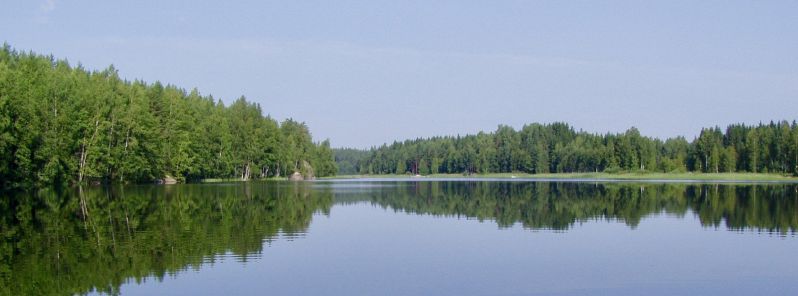Finland has the cleanest air in the world, WHO report finds

More than 90% of humans breathe dangerously contaminated air, according to the World Health Organization. Citizens of Finland, however, are not among them, a comprehensive analysis by WHO found. It shows that Finland has the cleanest air quality in the world, according to a report released by Finnish Meteorological Institute (FMI).
The level of fine particle density in Finland is on average 6 µg/m3 (micrograms per cubic meters), which is the lowest country-specific level in the world. Estonia, Sweden, Canada, Norway, and Iceland reach almost the same levels.
That means that Finns, and aforementioned countries, are largely spared from the debilitating illnesses caused by air pollution.
The data is found from the WHO's extensive analysis set, compiling fine particulate measurement data from 2500 locations in nearly 100 countries from the years 2008 to 2016. The highest particulate concentrations (countries with worst air quality) can be found in Middle East, Far East, and Africa. In these countries, low particulate concentrations are more than ten times as high as the best in the survey. India's metropolitan cities measure up to over 100 micrograms (100 μg / m3) annually.
"In the results, it has to be taken into account that the measurement data of developing countries include considerable uncertainty, because the quality of the measurement is not necessarily very reliable and the number of measurements is low, leaving regional representativity weak," notes Pia Anttila, Senior Research Scientist at the Finnish Meteorological Institute.
Finland has such clean air because of strong environmental regulations. The government invests in renewable energy, protects forests and lakes, and promotes the adoption of electric vehicles.
More than 7 million people are prematurely killed each year due to air pollution, the WHO reports. As fine particles from pollutants fill the air, they penetrate the lungs and cause stroke, heart disease, lung cancer, chronic obstructive pulmonary diseases and respiratory infections, including pneumonia, WHO notes.
The report says that the major sources of pollution in the world are coal-fired power plants, transportation and agriculture sectors, deforestation, and waste burning, among other sources.
All across the world, levels of fine particulate matter — indicating the presence of sulfate, nitrates, black carbon, and other contaminants — exceed levels deemed safe by WHO.
The easiest way to reduce air pollution is to limit these practices.
Key findings from the WHO data:
WHO estimates that around 90% of people worldwide breathe polluted air. Over the past 6 years, ambient air pollution levels have remained high and approximatively stable, with declining concentrations in some part of Europe and in the Americas.
The highest ambient air pollution levels are in the Eastern Mediterranean Region and in South-East Asia, with annual mean levels often exceeding more than 5 times WHO limits, followed by low and middle-income cities in Africa and the Western Pacific.
Africa and some of the Western Pacific have a serious lack of air pollution data. For Africa, the database now contains PM measurements for more than twice as many cities as previous versions, however, data was identified for only 8 of 47 countries in the region.
Europe has the highest number of places reporting data.
In general, ambient air pollution levels are lowest in high-income countries, particularly in Europe, the Americas and the Western Pacific. In cities of high-income countries in Europe, air pollution has been shown to lower average life expectancy by anywhere between 2 and 24 months, depending on pollution levels.
"Political leaders at all levels of government, including city mayors, are now starting to pay attention and take action," Dr. Tedros Adhanom Ghebreyesus, Director-General of WHO says.
"The good news is that we are seeing more and more governments increasing commitments to monitor and reduce air pollution as well as more global action from the health sector and other sectors like transport, housing, and energy."
Featured image credit: Dave_S / Flickr

Commenting rules and guidelines
We value the thoughts and opinions of our readers and welcome healthy discussions on our website. In order to maintain a respectful and positive community, we ask that all commenters follow these rules:
We reserve the right to remove any comments that violate these rules. By commenting on our website, you agree to abide by these guidelines. Thank you for helping to create a positive and welcoming environment for all.